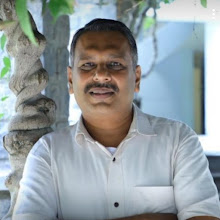THOUGHT FOR THE DAY
Faith
"Faith is a knowledge within the heart,beyond the reach of proof." - Kahlil Gibran
TOPIC OF THE DAY
A Faster Economy Needs Better Tools
In an event last spring in New York, I heard the story of a young man who received more than $90,000 for international software projects while he was collecting unemployment benefits. He hadn't had a visible full-time job in three years. But without tools designed for the new knowledge world, the government was unable to track that he was working, right in his room, for a small software company in Vietnam.
In the last few decades, the world has experienced series of booms and busts. Sometimes, we could blame them on lack of regulations, excessive greed, and so on. But what if we are in this vicious cycle because the economy has advanced beyond the tools developed long ago to track it?
Read on...
LATEST ARRIVALS
Money and Capital Markets: Financial Institutions and Instruments in a Global Marketplace By: Peter S. Rose, Milton H. Marquis



